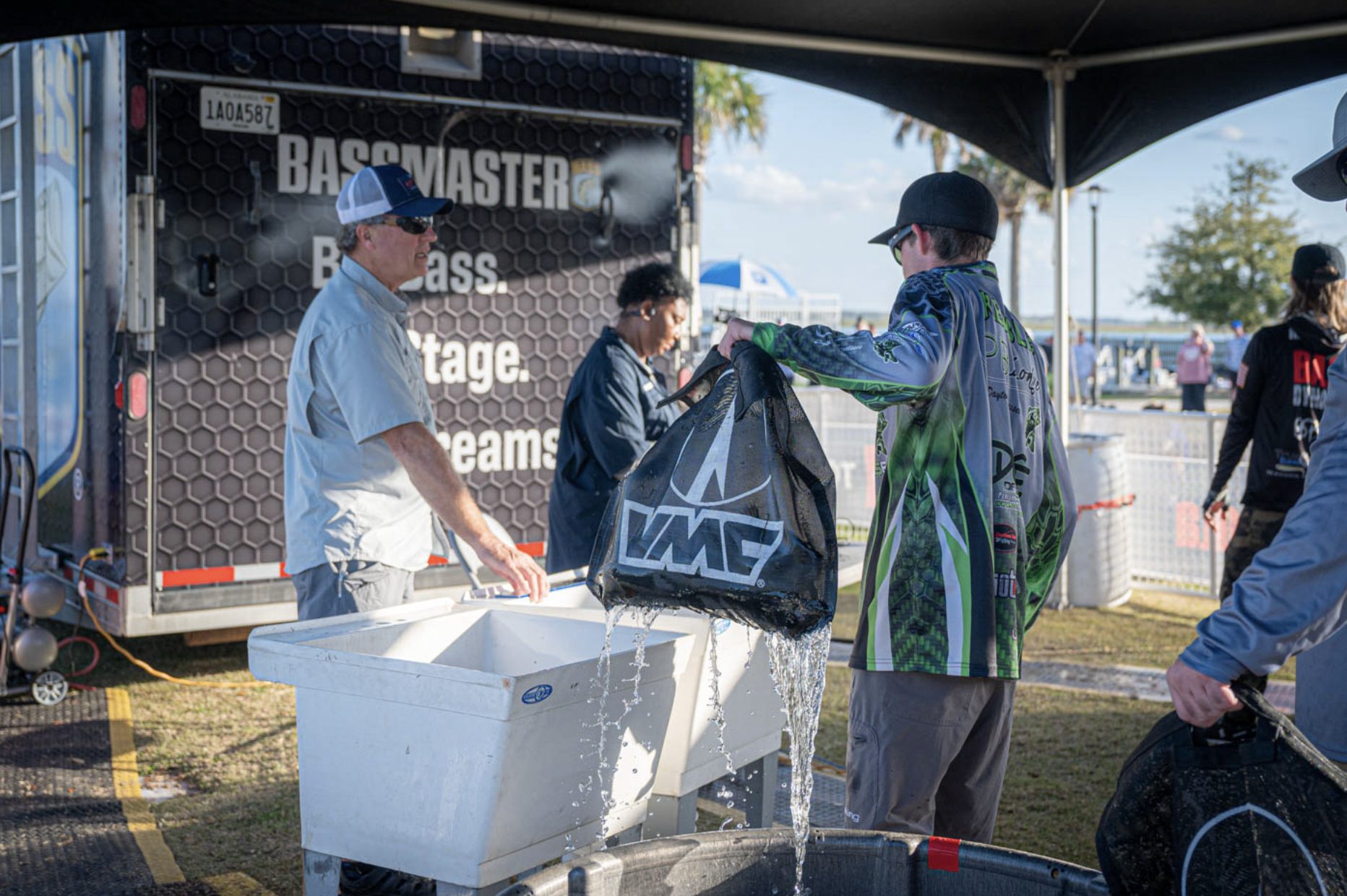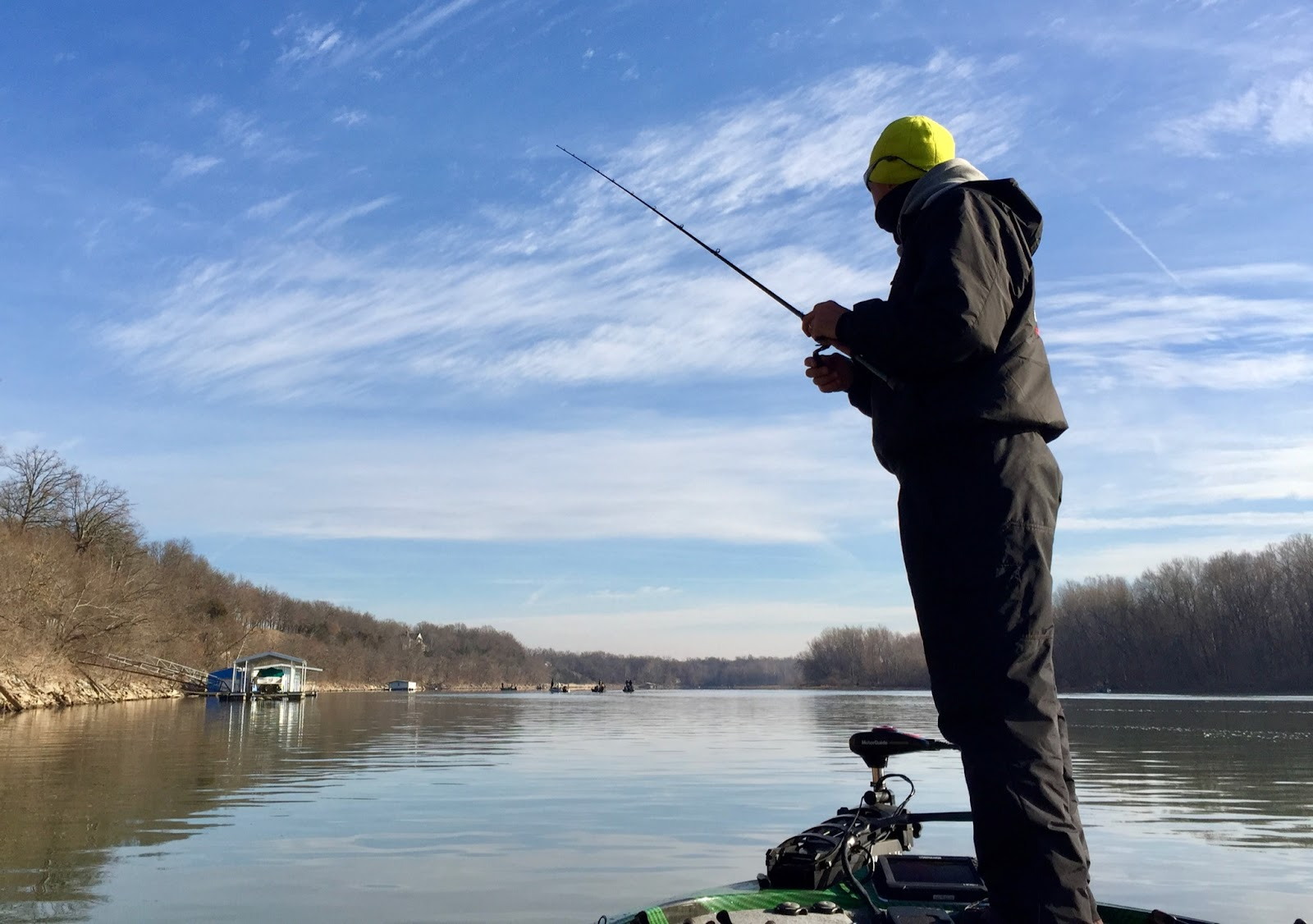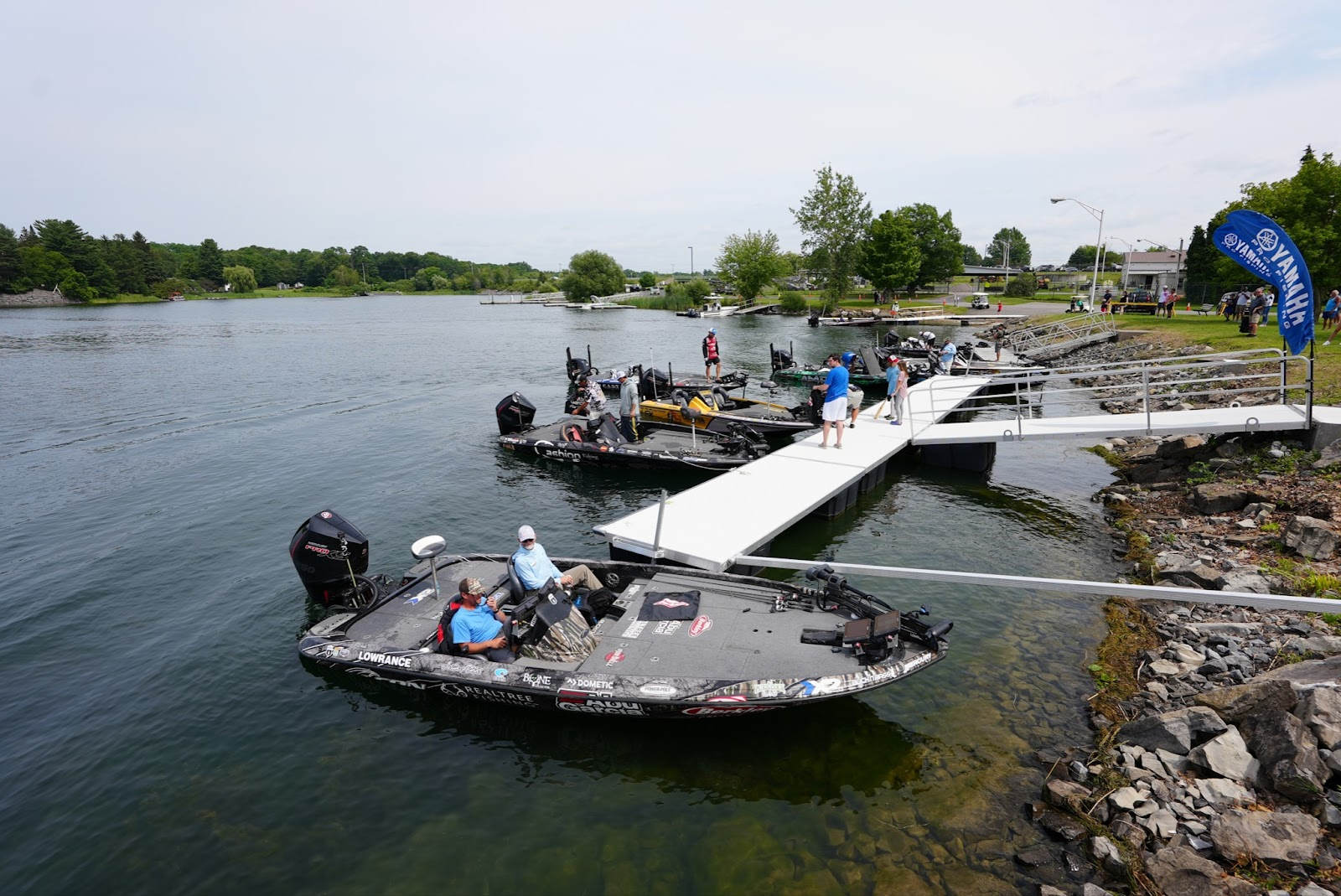The cliches about old fisherman’s tales exaggerating the size and quantity of fish caught during a day out on the water have their place in angler lore, but what happens when those fibs and fables find real consequences?
While deliberate cheating in fishing tournaments, and falsifying catch statistics to claim world records, are rare, the ones that are exposed tarnish the image of the entire industry that prides itself on integrity and comradery. Some of the extreme cases that capture media attention magnify that black eye even more.
“It’s very rare but they [cheating scandals] do happen,” said Chris Bowes, vice president of Tournaments for B.A.S.S.
Overwhelmingly, the fishing tournament industry is committed to fair and spirited competition, conservation, getting people involved in the outdoors and promoting a wholesome sport that families can do together. Cheats motivated by greed and attention are blind to the damage they cause to an industry rooted in life’s most simplistic appreciation of the outdoors.
But while the stain of scandals can sting, there is a silver lining—the attention it brings to the sport and the increased efforts of the angling community to stand together continually strengthening the wall of zero-tolerance to protect the integrity of the sport.
While some tournaments rely on tactics like pairing two unfamiliar anglers together to keep each other honest, others are turning to more stringent methods like polygraphs to level up the monitoring to meet their needs as angler competition and payouts continue to increase.

Bassmaster Classic tournament. Courtesy of B.A.S.S.
What’s the big deal?
The big deal is that tournament cheating and attempts to falsify records overshadows the good of the industry.
These events make many anglers—especially tournament directors—reluctant to talk about it, which is why industry heavy hitters like B.A.S.S. and the International Game Fish Association (IGFA) are speaking out.
Both organizations agree that deliberate cheating is rare, but it does damage to the industry from an image standpoint and inflicts irreversible consequences to the communities, sponsors and the people who support these tournaments.
B.A.S.S. runs about 50 tournament events a year ranging from the Bassmaster Classic, long considered the Super Bowl of fishing, and the Bassmaster Elite Series, Opens and the growing segments of competitive college and high school programs among others.
IGFA is the official authority for certifying world records, but it also runs tournaments with standardized rules that are used in other unaffiliated tournaments. Founded in 1939, the IGFA runs four tournaments a year, but it is most known for its establishment of rules that standardize world record catches.
“I wish the amount of good work that comes out of sport fishing like introducing a kid to the outdoors or building memories with family members or friends got more attention and not the few who are looking to cheat," said Jack Vitek, marketing director and chief of staff for the IGFA. “The amount of work that the sport fishing community does for conservation and preservation of fish in their habitat is unprecedented.”
These two respected organizations in the fishing industry recognize that speaking up can be a deterrent to anyone tempted to cheat the system. Their voices also empower tournament directors to do the same as they continually try to implement measures to prevent cheating in the first place.

Largemouth bass. Photo by Anietra Hamper
Lengths cheaters will go
The most recent scandal to rock the fishing industry made international headlines when competitors at an Ohio walleye tournament were caught during the weigh-in having stuffed their catch with lead weights. During that same weekend, Bassmaster crowned its college champion who won the coveted opportunity to punch his ticket to the Bassmaster Classic. Unfortunately, the spotlight on the walleye scandal overshadowed this positive crowning moment.
The Ohio walleye tournament anglers who were caught now face felony charges and possibly even jail time. While this case has drawn plenty of media attention, other tournament cheating that does not capture the same headlines does have the same devastating effects on the industry.
“Anglers can cheat by baiting holes, chumming intentionally during tournaments, getting fish out of hoop nets, jug lines, placing a fish in a cage before the tournaments or tying a fish on a string and retrieving it during tournament hours. There are so many ways anglers can cheat that it is hard to catch an actual cheater,” said Lisa Haraway, tournament director for the North Alabama Catfish Trail (NACT) who says that collecting actual proof of cheating after an accusation is made can be difficult.
With tournaments that often span several days and on waterways that make for vast playing fields, competitors who deliberately try to cheat the system find creative and sometimes extreme ways to attempt to claim the top prizes or a world record.
One example provided by the IGFA included an attempt to cheat a world record certification for a Pacific Blue Marlin with a falsified application by an angler who did not catch the fish themselves. The applicant was exposed when another angler who was on the boat came forward to disclose that falsification.
Another scandal involved a Blue Marlin tournament that made jaws drop at the weigh-in when the fish literally disintegrated because it had been physically stretched to meet the minimum tournament length requirements.
And, then there’s this … a case out of England where a competitor sewed a live well compartment into the lining of his jacket (complete with a battery-operated aerator) to hold previously caught fish to take with him into a tournament.

Tournament angler. Photo by Anietra Hamper
Why it happens
The same motivation that drives a positive competitive spirit among anglers who do it for all the right reasons with integrity is also what drives nefarious competitors to go to extremes to cheat the system. Vying for high-dollar prize tournament payouts or for the notoriety that comes with catching a certified world record makes competitive fishing a high stakes game. It all comes down to money and ego.
For example, the Bassmaster Classic has a $300,000 first-place prize, Elite Series events with purses reaching $100,000 for first-place and tournament Opens that net the winner $50,000. These tournament circuits collectively have up to one-million-dollar prizes at stake. That’s a lot of money, but money isn’t the only motivation.
“Folks that cheat in tournaments to that degree are stealing money from the other competitors and there should be consequences for that,” said Bowes. “While the money is important, it’s really about the trophy. There’s something about beating 200 other anglers in a tournament. The odds aren’t great, so to win there’s a lot of pride, but how can someone take satisfaction in that if they didn’t do it honestly?”
The same ego-driven motivation to cheat extends to attempts at claiming world records. Most of the rejected world record applications are caused by unintentional mistakes made by people who simply do not follow the rules. But there are occasional attempts to blatantly falsify applications that are flagged during IGFA’s stringent review process.
“We’ve had people that take a picture of fish with their rod and reel that have a bright green line, but when they submit the application and send in their tackle it’s a different line so you can see that it’s been altered,” said Vitek. “By IGFA rules if we determine the application to be deliberately falsified, all your records are wiped clean, and you will not be able to submit a world record moving forward.”
 Bassmaster Classic. Courtesy of B.A.S.S.
Bassmaster Classic. Courtesy of B.A.S.S.
The trickle-down effect
The negative impact of tournament cheating is lasting for those within the fishing tournament circles, but it even affects people outside of the fishing industry.
“Whenever it happens it’s not great optics for the recreational fishing industry,” said Vitek. “What transcends more is that people who don’t have much of a relationship with fishing see it painted in a bad light and all the good that is done like tournaments that give money back to charities and the environment are overshadowed. It tarnishes the sport.”
The trickle-down effect of cheating scandals to the individual communities that support fishing tournaments is immeasurable. Many tournaments also have charity, youth or veteran events tied to them and sponsors with brand names attached to the promotion. Tournament anglers pump millions of dollars into the local economies of communities that host them filling hotel rooms and restaurants. The negativity from a scandal, especially as it spreads on social media, damages all those positive efforts.
Nothing illustrates that more than the YouTube video statement released by Jason Fischer, tournament director for the Lake Erie Walleye Tournament (LEWT) at the heart of the Ohio walleye cheating scandal as he held back tears responding to the impact.
“Tournament fishing represents so much more to me than what’s being highlighted on social media. These things my anglers do to serve the community astound me—they get involved in the community, they donate time, they donate food to local causes, they put on seminars for the youth, youth fishing clinics and show the next generation how much fun the outdoors can be. They take wounded warriors and veterans fishing. They constantly look for ways to give back to the community. These are the things that need to be spotlighted right now, not 12-ounce weights and dishonesty.”
“We don't just lose sponsors, we lose respect from the communities, and we lose growth of the sport,” said Haraway. “It hurts the youth that are reading all the negativity, stops the new anglers wanting to fish the tournaments, and we lose good anglers that stop fishing due to the negativity. The entire fishing industry is losing out as a community. I think all fishing communities can do better with monitoring and helping the sport move forward.”

Bassmaster Classic. Courtesy of B.A.S.S.
What’s being done about it?
Self-policing and other protocols are the biggest line of defense against tournament cheating and record falsification. Many prevention methods have worked for decades but there is no doubt that each time a new scandal makes headlines tournament officials take another look at the protocols that are in place.
It starts with diligence. The IGFA has strict protocols when it comes to world record applications, and they are reviewed by multiple staff members. Applicants must submit a completed and signed application and affidavit, submit photo or video documentation of the angler with the fish and evidence of the actual rod and reel used with a photo or video of the scale used to weigh the fish. Anglers must also send in the tackle used to catch the fish including the full length of the leader, double line and 50 feet of main line with the hook.
The scale used to weigh the fish has to be certified within the last year or certified within a short period of time afterward. If there are questions about the application the IGFA can ask for witness statements, request additional testimony, or polygraph the submitter.
Bassmaster employs a method of having two unfamiliar competitors in the same boat at tournaments, a rule that has been in place since its inception in 1967. More recently, Bassmaster has added Marshalls to tournaments to help enforce the rules and to manage fish handling care. There are strict protocols for bringing the fish alive to the scales for weighing. While the Bassmaster philosophy seems old school, it works, at least for now.
“What’s important is that the competitors have confidence in the league. Cheating is so rare that there hasn’t been a huge call for change and most competitors are honest and have high integrity,” said Bowes.
As many fishing tournament series see an increase in competitors and payouts, especially in the fast-growing catfish tournament segment, tournament directors have had to tighten the rules adding elements like live well inspections and pop-up polygraphs.
“I measure every single fish,” said Alex Nagy, tournament director for Twisted Cat Outdoors Tournament Series who has instituted daily live well checks and made polygraphs standard at every tournament where the difference in weight between first and second place can vary by as much as 50 pounds. “I think it helps to deter cheating. It shows we are serious and keep an eye on things. The extra steps take time, but I want it to be fun, competitive, and fair.”
Haraway has instituted similar zero-tolerance policies at her tournaments.
“If anyone fails the polygraph they will be banned from my trail for life,” said Haraway.

Bassmaster Classic. Courtesy of B.A.S.S.
Where tournaments go from here
While the discussion of tighter protocols and more stringent measures like metal detectors are considered to help mitigate cheating, many tournament directors still believe that self-policing is the best option and speaking up is essential.
“We must find a balance as it’s not practical to have a Marshall in every boat. Our playing field is large, hundreds of miles long with huge waterways to police so it comes down to self-policing,” said Bowes. “Anyone in fishing tournaments who has a feeling of concern that something’s not right that is impacting the outcome of the event, has a duty to bring that to the tournament director to investigate. Sometimes people are reluctant to speak up.”
Tournament fishing and anglers are a community based on integrity, so while cheating scandals deliver a blow of negativity, they also reinforce the tight fabric of people who band together even more so each time it happens to take a stand against such deliberate and damaging acts.
“In the long run it is actually good because people will take more precautions and watch for what others do,” said Nagy. “Most people are doing tournaments to have fun and get away and because they love fish.”
Nagy and others look at these incidents as an opportunity to continue creating consistency and cohesiveness in the industry, even if it is just showcasing a zero-tolerance stance, which is a strong deterrent itself. Jason Fischer ended his emotional YouTube statement by echoing that sentiment.
“Fishing is a national pastime, and something passed on from generation to generation. We will fix this,” said Fischer. “This will make us stronger.”
